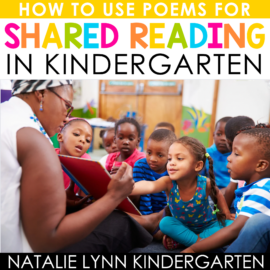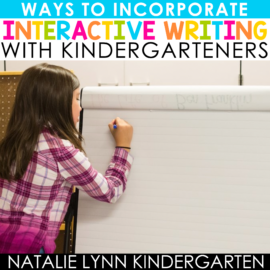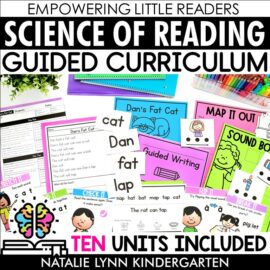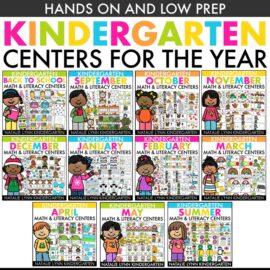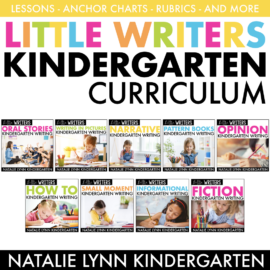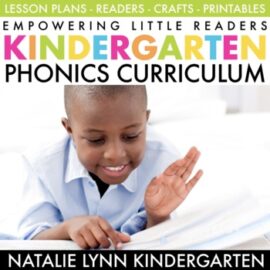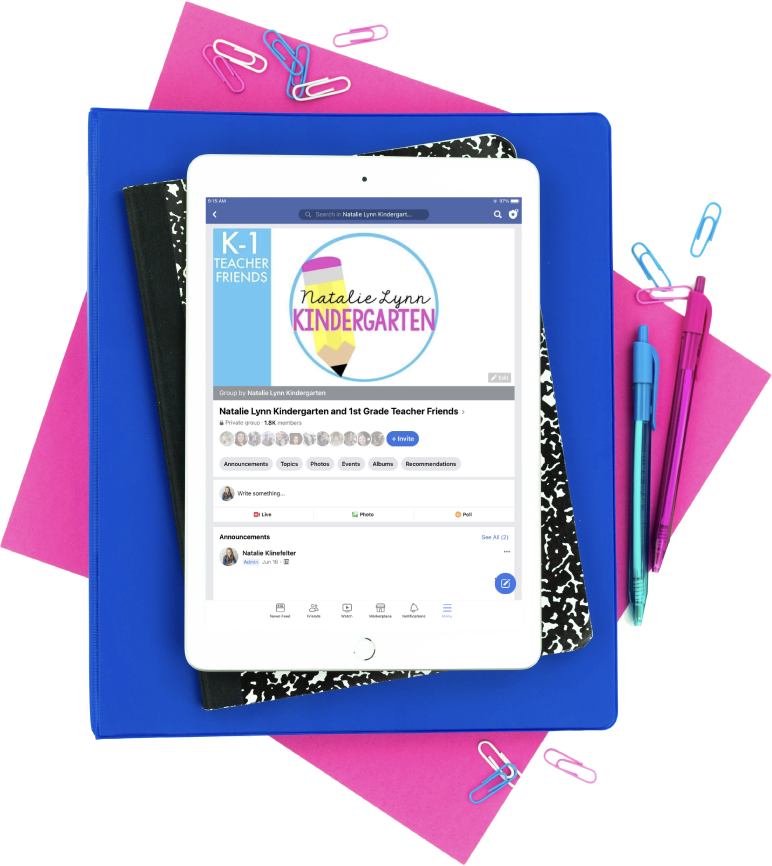
When I began teaching kindergarten, I had no idea where to start. I had subbed in kindergarten classrooms before, but boy did that not prepare me for the first day of kinder! That’s why I decided to write these tips for new kindergarten teachers.
Break It Down
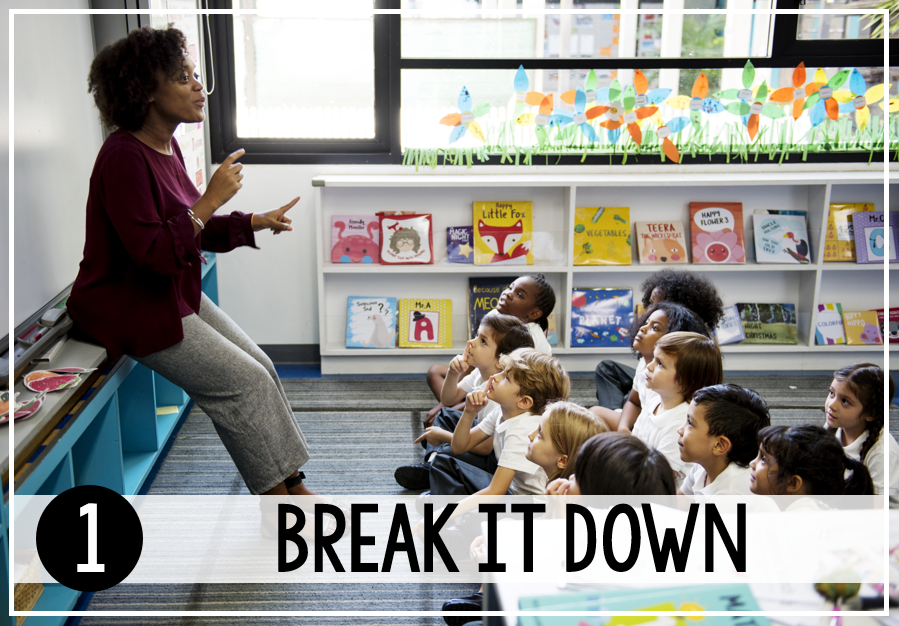
I’m not going to lie to you; even if you’ve taught younger grades before, the beginning of kindergarten is rough. New kindergarten teachers, you might think you’re doing something wrong. Nope! It’s really just that hard.
We have to keep in mind that our students are 4 and 5 years old! Some have never been in school before. They may have never been around children their age before. Some have never seen a pencil before.
Break. Everything. Down. And then break it down some more. Think the babiest of baby steps.
When you begin planning for your year, think about every material you will want students to use and every routine you will need to make your day run smoothly. Then, plan exactly how you will teach those things.
In the first few days of school alone, I have individual lessons on: how to sit in a chair, how to leave the table, how to sit at the carpet, how to use supplies, how and when to talk, how to use the bathroom, how to line up, how to walk in line… the list goes on!
To see all all the routines and procedures I teach, click here.
Have Fun!
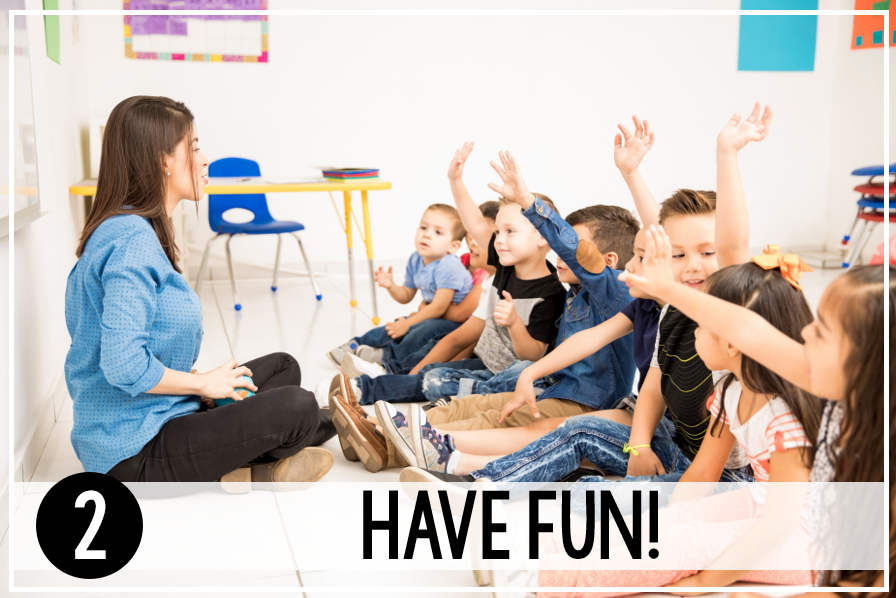
This seems so obvious, but it can be hard to remember in the moment. Again, our students are 4 and 5 years old!
At the beginning of the year, teaching kindergarten can be like herding cats. Instead of getting frustrated, I try to make everything into a game.
You can teach students to look at you and listen to directions by playing teacher says. Let’s say you want to make a craft. It goes like this: First, give a direction. “Cut this line.” Wait. Students will most likely not look at you for what to do next. Say, “If you are looking at me, do this {do a funny motion}. If you are looking at me with a bubble, do this {do another funny motion}.” When they are all looking at you and doing the motions, you can give the next direction.
You can also sing any directions! When I want to yell (because, hello, human), I try to sing what I want to say. This is especially helpful if you feel like students are tuning your voice out.
Routine Is King
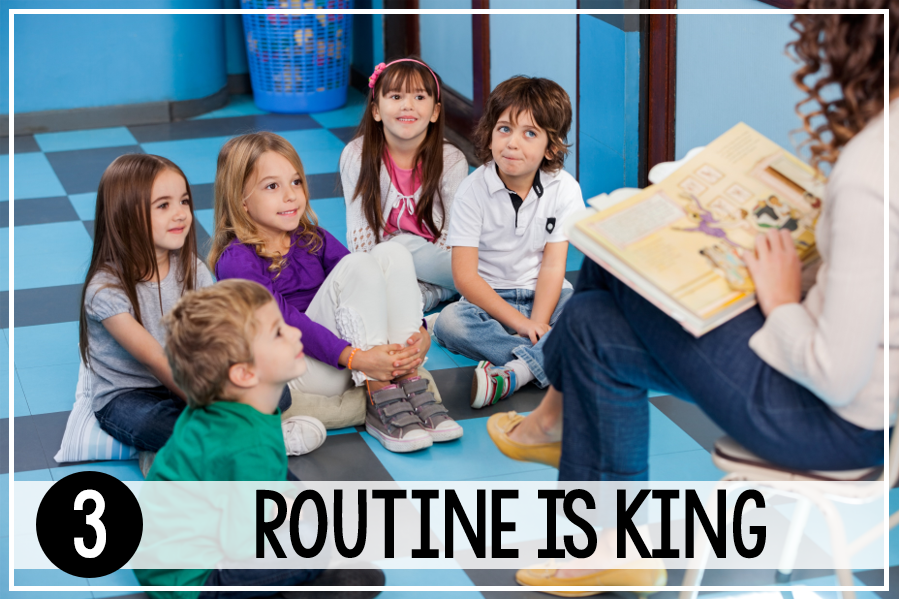
I know I basically said this before, but i’m going to say it again because it’s that important.
Routine is king.
Kindergarten students thrive on routine and knowing exactly what they are supposed to be doing and what comes next. By introducing daily routines, you can quickly teach your students to become completely independent. By the end of the year, they are running our room!
I build routines into each part of our day, from our morning meeting, to literacy centers, to writer’s workshop, and beyond!
Now, that doesn’t mean that your routine can’t change. Anything and everything will happen within your day and you’ll need to be flexible and teach your students to be flexible as well. And if a part of your routine isn’t working for you? Then you change it!
Teach Social and Emotional Skills
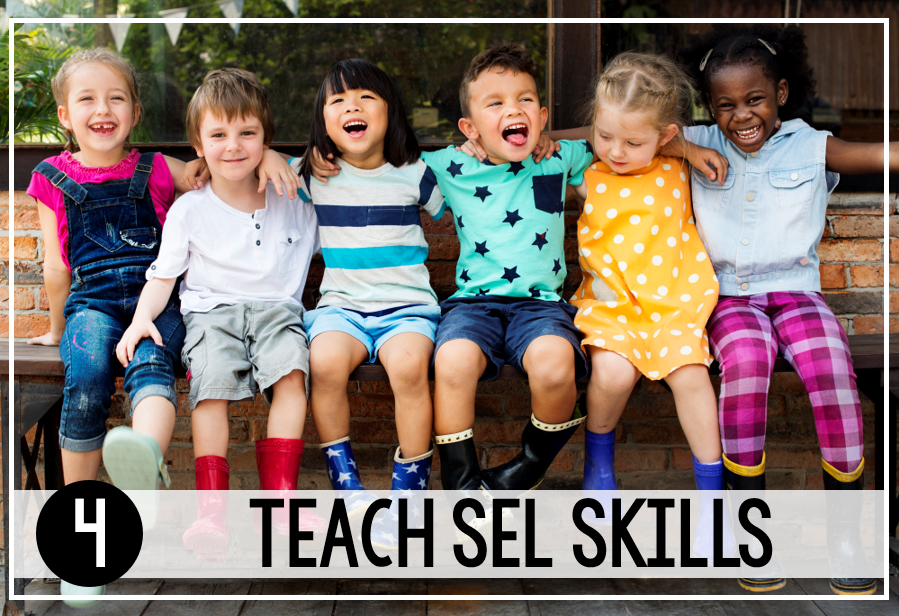
Self control, self-regulation, and social skills are skills we need to teach just like math and reading.
When students make a poor choice, use it as a teaching moment. Say, “You want ____ but this happened. Instead you can, ___” and have them practice with you.
Take time to teach students about their emotions and what choices they can make to self-regulate. You can teach students the steps to using a calm down corner, just remember to explicitly model how to use it, practice with them, and then review it throughout the year.
It’s also important to teach students how to interact with others appropriately. Remember, some of our students have never been around children their age. Teach them how to talk and listen, how to play together, how to share and take turns. This is why play is so important!
Engaging Lessons
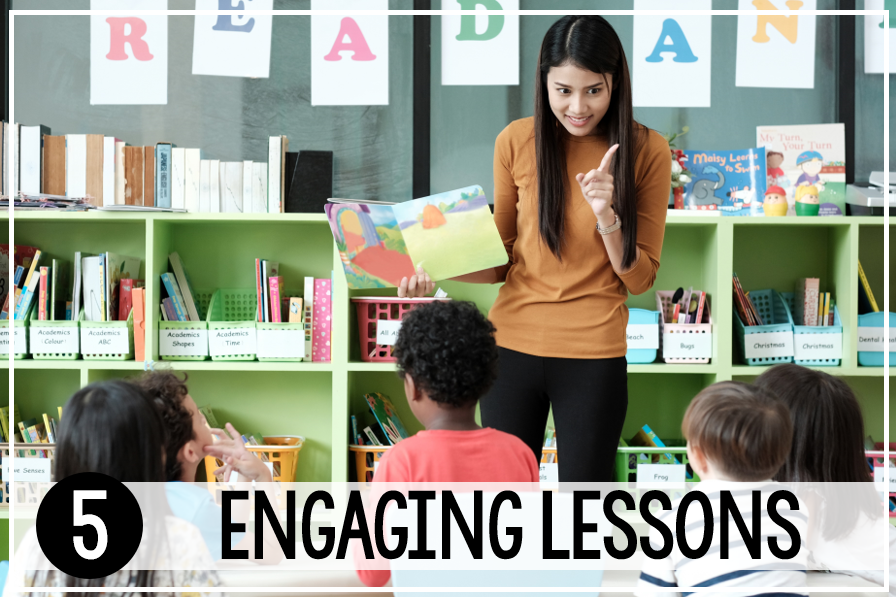
If your students are engaged in what they are learning, your life will be 1000% easier! Having engaging curriculum and lessons that allow for movement, break the time up into smaller increments, and is developmentally appropriate can cut behavior problems in half.
When you plan out a lesson, remember that students will be able to listen and attend for about as long as their age. That’s right – 4 to 5 minutes!
Try to break your lesson into chunks with tasks that require sitting and then movement based tasks. As the year goes on, students’ stamina will grow and then you can plan longer activities.
I will be sharing my weekly lesson plans this year on the blog, and I hope they will help you as you plan!
Build Relationships
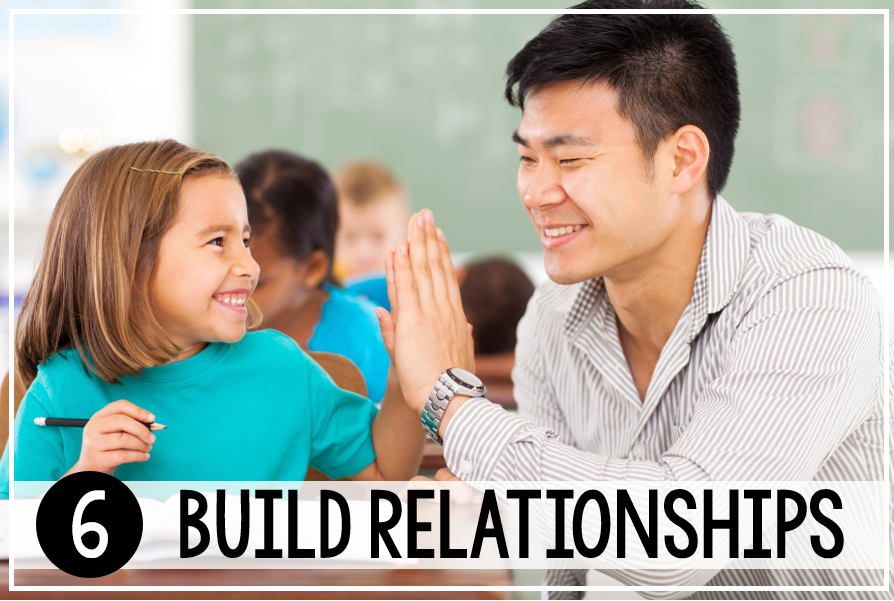
This one is key! If I could only give one tip to new kindergarten teachers, it would be this: It’s all about relationships!
No matter what else goes on in your classroom, students will remember how you made them feel. When you have a good relationship with students, they will be willing to take more risks, participate more, and enjoy going to school.
How can you build relationships with students?
First, start by building a relationship with their families. If you don’t have a good relationship with a family, it will be hard to build one with their child.
I start every year by introducing myself to families. You can grab your own copy by clicking on the picure:
I also make sure to reach out to each family the first few weeks to reintroduce myself and then talk positively about how much I have loved getting to know their child.
The best way I have heard this put is: You have to make deposits before you can make a withdrawal.
Building Relationships With Students
I try to make an effort to get to know each student and their likes and dislikes. An easy way to do this is to sit with each table or group of students for a few minutes during morning tubs.
Also, don’t be afraid to make mistakes in front of your students! When you do, own up. You’re human.
If you need to, apologize to students. Model the behavior you want to see from them.
Take Care of You
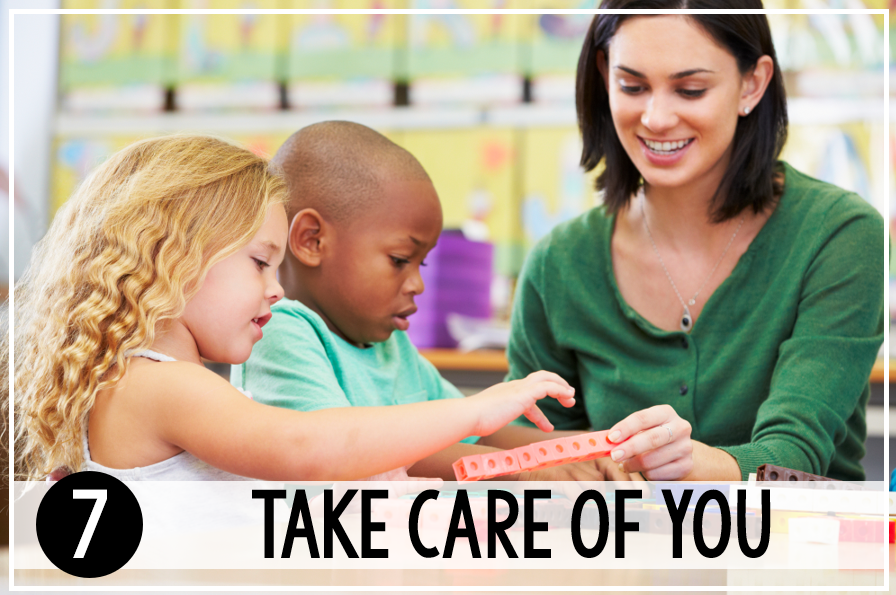
New kindergarten teachers, I say this with love – this job is going to be hard. The first few weeks are going to make you question why you’re here. It may seem like your students are never going to get to where they need to be.
They will!
Your students will grow and thrive and become so independent. You will learn why kindergarten is such a special grade.
But new kindergarten teachers, please, take care of you.
There will always be more to do. You may find yourself spending hours at school and hours at home working and then working some more. It can overwhelm and consume you if you let it.
Set boundaries. Know that things don’t have to be perfect. Let the kids take ownership of the classroom as much as possible. Don’t feel guilty for using your sick days – it will be better for everyone in the long run. Take your personal time to enjoy your life, rest, and recharge.
Do these things and you’ll be your best for your students each week.
I hope you learned some new kindergarten tips! Do you have any tips for a new kindergarten teacher? Let us know below?
Pin this post for later:




